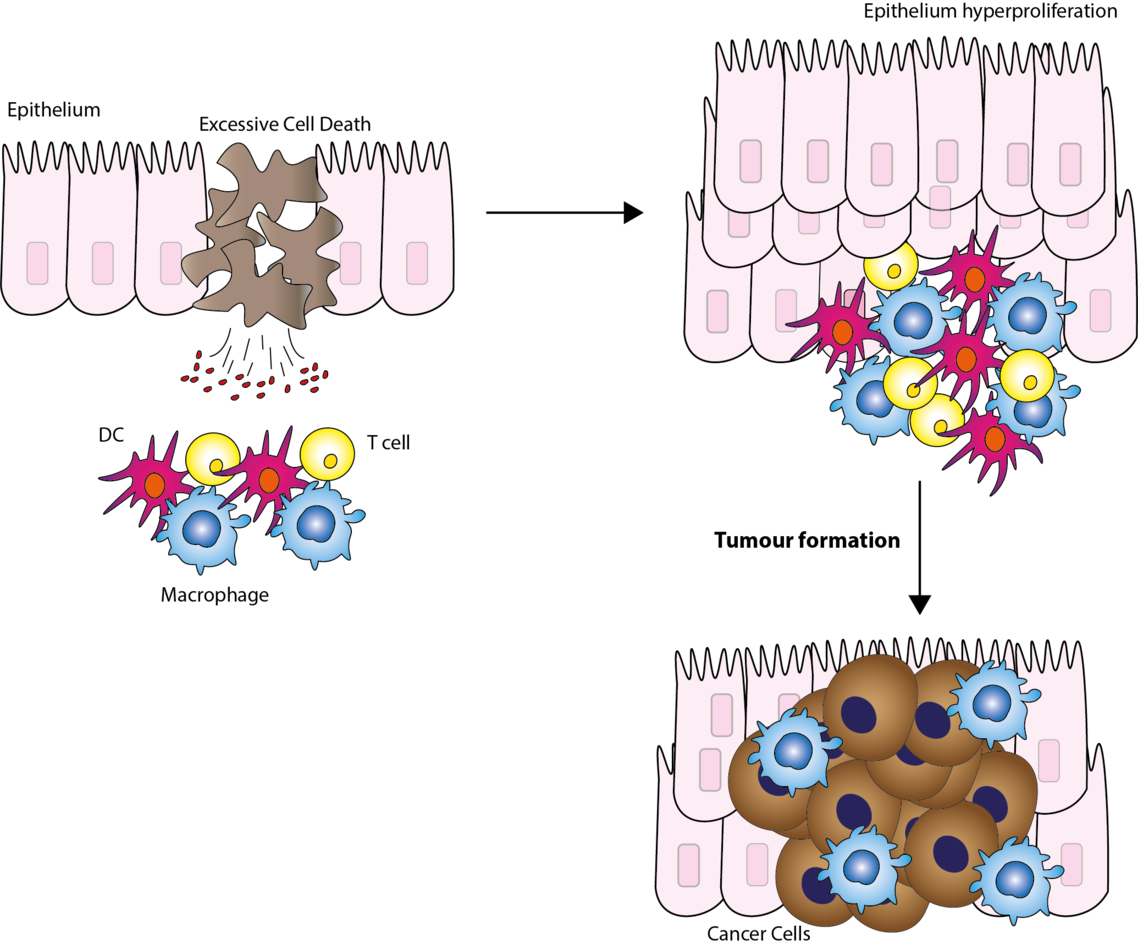Understanding the role of cell death in health and disease
Programmed cell death is a fundamental biological process that ensures tissue development and repair following damage or pathogen infection. However, when deregulated, cell death can have severe pathological consequences. It has been known for long time that evasion of cell death is a hallmark of cancer. On the other hand, it recently became clear that aberrant cell death is a causative factor for inflammation and inflammation-related disorders. In addition to its role in auto-inflammatory and auto-immune diseases, inflammation fuels malignant cell growth and favour the evasion of anti-tumour immunity. Therefore, the relationship between cell death and cancer might go beyond the evasion of cell death programs by cancer cells.
In our laboratory we want to address the following scientific questions:


CMMC
Center for Molecular Medicine Cologne
Laboratory of Cell Death, Inflammation and Immunity
- JRG location CMMC
Robert-Koch-Str. 21
50931 Cologne
Tel. +49 221 478 37455
alessandro.annibaldi[at]uk-koeln.de
Find out more: